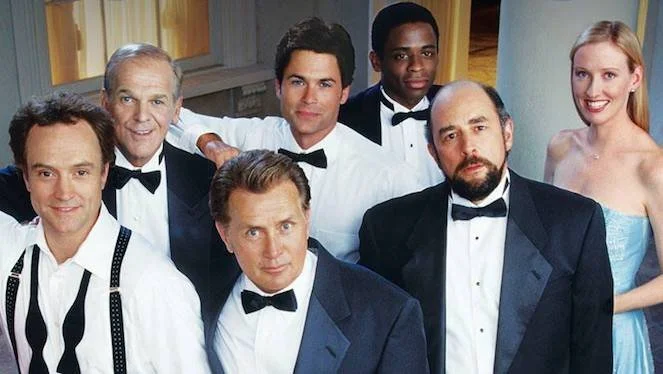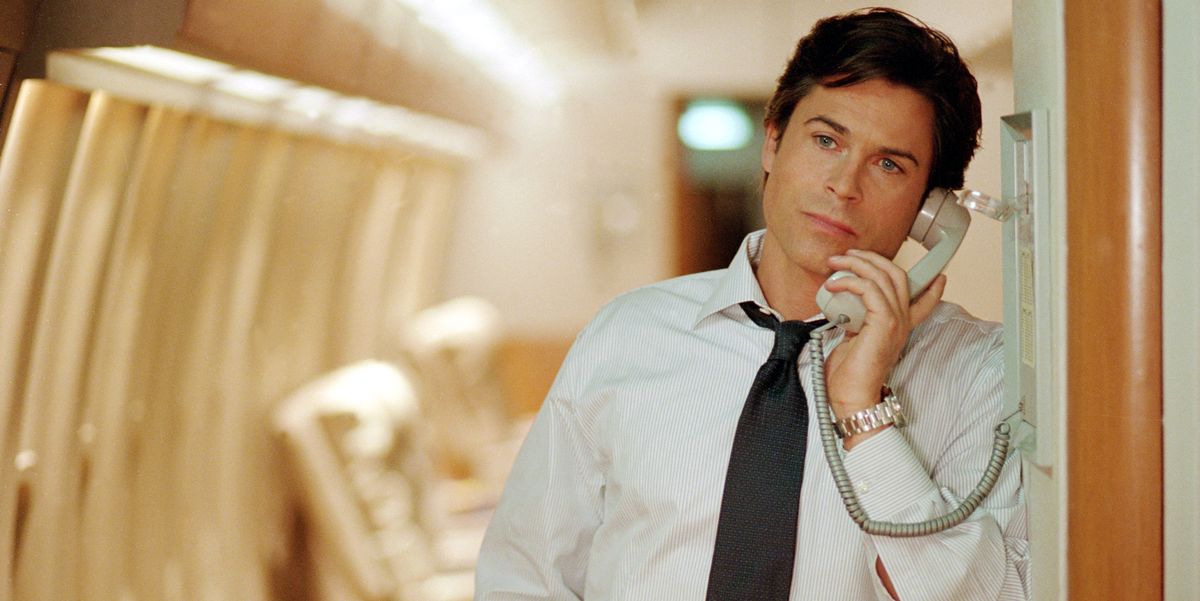The West Wing was a work of art in political drama. Being the masterpiece that it was, The West Wing came on our TV shows and hooked everyone, winning nine Primetime Emmy Awards in its first season alone. This made The West Wing the show with the most Emmys won in a single season at the time. Sorkin’s four seasons received Emmys and popularity; it is fair to say that the time with Sorkin was the show’s apex. Warner Bros. produced the first four seasons. Rob Lowe, Moira Kelly, Dule Hill, Alisson Janney, Richard Schiff, John Spencer, Bradley Whitford, and Martin Sheen starred in the show.
The West Wing’s seven-season run ended in 2006, but it’s legacy of political drama walk-and-talks lives on. The beloved character of Sam Seaborn, played by beloved actor Rob Lowe, contributes to the show’s charm and success. Sam was written out of the show in the fourth season, despite his charm and charisma. Rob Lowe portrayed Deputy Communications Director Sam Seaborn, a memorable character throughout the first four seasons. Sam, who was supposed to be the main protagonist of the entire series, was a principled speechwriter whose rigid morality and faith in the best of people occasionally got him into trouble.
Why Did Rob Lowe Leave West Wing?
Some believe Lowe left the Emmy-winning political drama because his role had shrunk since the show’s debut in 1999, while others believe there was no longer a place for Sam Seaborn on ‘The West Wing,’ and that Lowe’s departure was partly motivated by money. Lowe became one of the show’s highest-paid actors, earning around $70,000 per episode. While Lowe was initially paid more than many other cast members, he was not given a raise when many others were. Martin Sheen, who played President Bartlet, had nearly quadrupled his salary, while the rest of the actors who played senior staff members had more than doubled their starting salaries.

Lowe asked for a raise at the time and was told to wait another year. He did. According to a source close to the actor, Rob never even got to the point this year where he could discuss a raise. They did not bargain. He was not among the nine “Wing” cast members who received Emmy nominations.
Nonetheless, one source close to the situation believes Lowe acted too quickly. Things might have turned out differently if he had been willing to wait. Warner could have calculated how much money they would make.
Lowe’s departure was also motivated by his character’s diminished role in the series. While Sam had begun as the series’ lead character, with much of the first episode focusing on his exploits, other characters had grown in popularity, eventually eclipsing Sam. Losing the spotlight to other characters may have also influenced Lowe’s decision to leave the show. According to Sheen, his co-stars were devastated by the loss. Regardless of any animosity toward his pay, it appears that Lowe had formed genuine bonds with the other actors and was genuinely missed.

When Sam decided to run for Congress in a special election to replace the Democratic candidate who had won Sam’s home district posthumously, Robe Lowe’s departure was written into the fourth season of The West Wing. Sam’s campaign reduces Lowe’s role in the fourth season and prepares him to leave the main series. His character does, however, return for The West Wing’s final season to rejoin his friends in the new Santos administration, providing a nice bookend for the character and further evidence that, despite his departure, Lowe still loved the show.
An announcement was made by John Wells Productions and Warner Brothers Television of Lowe’s exit through a statement. Lowe then issued his own statement, stating that, while it was painful to admit, it had been clear for quite some time that Sam Seaborn had no place on The West Wing. He goes on to say that Warner Bros. gave him the opportunity to leave the show as he came in, and he is grateful for it, happy to have been a part of it, and proud of it.




